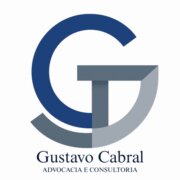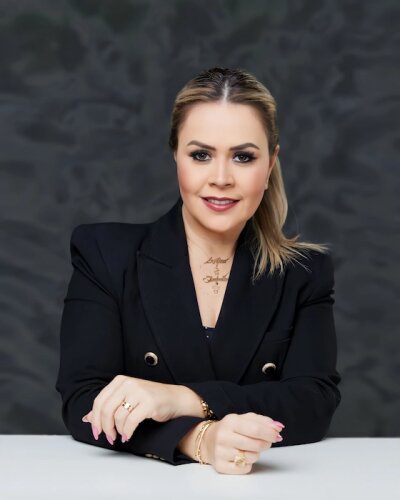Best Native People Lawyers in Itajaí
Share your needs with us, get contacted by law firms.
Free. Takes 2 min.
List of the best lawyers in Itajaí, Brazil
About Native People Law in Itajaí, Brazil
Native People in Brazil, known as Indigenous Peoples or "Povos Indígenas," possess distinct rights that stem from both centuries-long traditions and modern Brazilian law. In Itajaí, a coastal city in Santa Catarina, Indigenous communities are recognized and protected by the Brazilian Federal Constitution and several local statutes. These laws seek to safeguard Indigenous culture, land, education, and general wellbeing, while also promoting respect and inclusion. Although Itajaí is primarily an urban and port city, there are Indigenous individuals and families who live in or move through the region, often seeking access to services, employment, and legal rights.
Why You May Need a Lawyer
Working with a lawyer who specializes in Indigenous or Native People law can be vital for several situations. These include resolving land rights disputes, ensuring access to public services such as healthcare and education, protecting against discrimination, advocating for cultural preservation, addressing documentation or identification issues, and navigating interactions with government agencies. Legal representation can also be crucial if Indigenous individuals encounter criminal accusations, labor disputes, or issues relating to their children or families.
Local Laws Overview
Brazil has ratified numerous laws and international treaties to protect Indigenous rights, most notably the Federal Constitution of 1988, which affirms the social, cultural, and territorial rights of Native People. In the context of Itajaí, local authorities are guided by federal statutes as well as state and municipal regulations that provide frameworks for the recognition of Indigenous status, access to public education tailored to cultural needs, eligibility for certain healthcare programs, and participation in community life. The rights to land demarcation and protection are especially significant, though enforcement can sometimes vary. Anti-discrimination laws also protect Indigenous individuals from bias in employment, housing, and other social spheres.
Frequently Asked Questions
Who qualifies as a Native Person in Itajaí, Brazil?
A Native Person or Indigenous Person is recognized based on ancestry, self-identification, and community acknowledgment according to Brazilian law. Specific documentation issued by the Fundação Nacional dos Povos Indígenas (FUNAI) helps formalize this status.
What rights do Indigenous People have in Itajaí?
Indigenous People have rights to cultural preservation, land (where recognized), health, education, social assistance, and protection against discrimination, as guaranteed by the Brazilian Constitution and local laws.
Can Indigenous People access special health services?
Yes, Indigenous People can access specialized health services through the Special Secretariat of Indigenous Health (SESAI) and local public health systems, which are required to consider cultural needs.
How are land rights for Native People managed?
Land rights are primarily managed at the federal level through FUNAI, but local authorities must cooperate. If land demarcation issues arise in Itajaí, legal assistance may be needed to advance a claim or protect recognized territories.
What protections exist against discrimination?
Brazilian law prohibits discrimination based on ethnicity or cultural background. If Indigenous People face discrimination in employment, education, or housing, they can pursue legal remedies with local or federal authorities.
Can Indigenous children attend public schools in Itajaí?
Yes, Indigenous children have the right to attend public schools. Educational programs must respect their cultural and linguistic heritage, and there are sometimes initiatives for intercultural education.
How can Indigenous People claim social benefits?
They can apply for social benefits through local government offices or the Instituto Nacional do Seguro Social (INSS). Assistance from legal professionals or Indigenous organizations can greatly help in navigating the required paperwork.
Where can an Indigenous person go if they experience violence or threats?
Anyone facing violence or threats can report it to the local police or seek help from the Public Defender's Office. Specialized Indigenous organizations and support centers are also available to offer assistance and advocacy.
Is documentation required to prove Indigenous status?
While self-identification is important, official recognition through FUNAI-issued documents is often required for access to certain rights and services. A legal professional can help with the documentation process.
How can a lawyer help Indigenous People in legal matters?
A lawyer can provide guidance on Indigenous rights, prepare legal documents, represent clients before courts or government agencies, and defend them in criminal or civil proceedings. Lawyers familiar with Indigenous law can also help with mediation and negotiation in community disputes.
Additional Resources
- Fundação Nacional dos Povos Indígenas (FUNAI): The main federal authority for Indigenous rights and land issues - Ministério Público Federal (Federal Public Prosecutor): Handles cases involving Indigenous rights violations - Secretaria Municipal de Assistência Social de Itajaí: Local agency providing social assistance - Special Secretariat of Indigenous Health (SESAI): Provides health programs for Indigenous communities - Conselho Indigenista Missionário (CIMI): Offers support and advocacy for Indigenous Peoples in Brazil - Public Defender's Office (Defensoria Pública): Offers free legal aid including for Indigenous cases
Next Steps
If you or someone you know requires legal assistance related to Indigenous rights or issues in Itajaí, begin by gathering relevant personal and community documentation such as proof of Indigenous status and any communication you have had with local or federal authorities. Consult with a specialized lawyer, Public Defender's Office, or Indigenous support organization for an initial assessment. They can help you understand your rights, gather necessary evidence, and start a legal process if needed. Act promptly, especially in urgent cases such as violence, land conflicts, or discrimination, to ensure rights are preserved and protected.
Lawzana helps you find the best lawyers and law firms in Itajaí through a curated and pre-screened list of qualified legal professionals. Our platform offers rankings and detailed profiles of attorneys and law firms, allowing you to compare based on practice areas, including Native People, experience, and client feedback.
Each profile includes a description of the firm's areas of practice, client reviews, team members and partners, year of establishment, spoken languages, office locations, contact information, social media presence, and any published articles or resources. Most firms on our platform speak English and are experienced in both local and international legal matters.
Get a quote from top-rated law firms in Itajaí, Brazil — quickly, securely, and without unnecessary hassle.
Disclaimer:
The information provided on this page is for general informational purposes only and does not constitute legal advice. While we strive to ensure the accuracy and relevance of the content, legal information may change over time, and interpretations of the law can vary. You should always consult with a qualified legal professional for advice specific to your situation.
We disclaim all liability for actions taken or not taken based on the content of this page. If you believe any information is incorrect or outdated, please contact us, and we will review and update it where appropriate.











